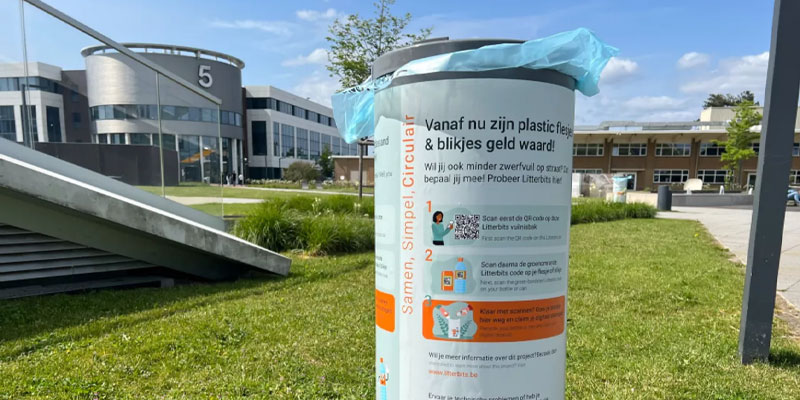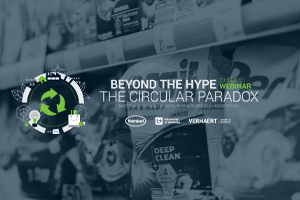The first pilot project for digital deposits starts today at Corda Campus in Hasselt. Employees of the various companies present will participating in testing out a digital deposit system for bottles and cans they buy on campus. They will be the first to test the technological solution to recover this deposit digitally, via the garbage cans provided for this purpose on the campus. The pilot project was developed by software platform Twintag, innovation group Verhaert Masters in Innovation and ICT company Cegeka, following a project call by OVAM. The project is therefore overseen and chaired by the steering committee for the pilot digital deposit projects, consisting of Comeos, Fevia, Fost Plus, the VVSG, the Interregional Packaging Commission, the cabinet of Flemish Minister of Environment Zuhal Demir and the OVAM.

Focus on viability, usability and technology
Last month, three project proposers were selected by this steering committee after being advised by a sounding board group including representatives of environmental and consumer associations:
- The Litterbits consortium with Twintag, Verhaert and Cegeka
- The company Unbox
- The organization DDRS Alliance
Each of those selected will be asked to test their technology in three different places: in a closed environment in the second quarter of the year (e.g., a company), a semi-open environment in the third quarter (e.g., a vacation park where people consume both indoors and outdoors) and an open environment in the fourth quarter (e.g., at the level of a city or municipality).
The project starting today is the first of a total of eight pilot projects to identify the most feasible digital solution to collect more beverage containers and reduce their share in the litter. Indeed, the Flemish Government decided to test out digital systems by 2023 before making a final decision on the deposit system to be rolled out in Flanders.
The first pilot project zooms in on the process and use of existing technology to scan unique codes on beverage containers using specially developed mobile applications. After consuming a drink, a user must scan the provided garbage can with the smartphone before depositing the empty plastic bottle or can in it. Afterward, the user is refunded the deposit.
This first phase deliberately focuses on the feasibility, ease of use and support around the system of digital deposit. In the next steps (later during the summer) other facets of the deposit system will then be tested step by step in practice at other locations. The impact on litter will be the main focus.
Werner Annaert, administrator general OVAM: “In order to collect even more beverage packaging, we need an easy system that allows you to sort your packaging correctly at any time, at home and on the road. A system that above all must have a demonstrable effect on litter. Even if you throw away an empty bottle or can outside the home, you should be able to get your deposit back. Together with the steering committee, OVAM wants to make sure that all aspects are examined comprehensively and correctly during the pilot projects.”
More tests in the second half of the year
In the next phase, tests will also take place in a semi-open and open environment. The intention is to test the various components in realistic conditions and with more and more variables. The impact on litter is one of the main research questions throughout the project. This will be addressed in the next phases of the pilot projects when testing will take place in more open environments where litter occurs.
The final evaluation should allow the Flemish Government to make an informed decision by the end of this year, in consultation with the other regions. In Wallonia, a study ordered by Minister Tellier on the various possible scenarios for deposits is underway. There too, in consultation with the cabinet, specific tests are being organized that respond to the concerns and points for attention in the Walloon Region.
(Translated from the press release of OVAM)




